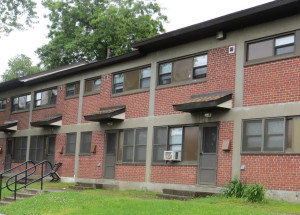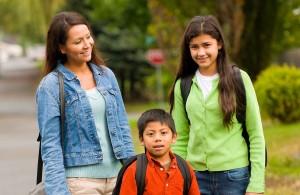Ray Mariano, executive director of the Worcester Housing Authority (WHA) and former four-term mayor of Worcester is on a mission to point individuals and families currently residing in public housing toward “A Better Life.”
A Better Life (ABL)
ABL is a program designed to encourage upward mobility for public housing tenants; challenging them to reach goals, become educated, secure employment, and to make better healthcare and financial choices.
Though the program was voluntary when instituted in 2011, it has since been made compulsory for some residents within the WHA system.
 The ABL program requires one adult in each household to work or attend school for a minimum of 1,200 hours per year, which is an average of 23 hours per week. Support services to reach for these goals are provided through grants as part of the program. If the residents do not make an effort to abide by the program rules within three years, they face eviction. The disabled and elderly are not a part of the mandatory participation program, so they will not be compelled to leave public housing.
The ABL program requires one adult in each household to work or attend school for a minimum of 1,200 hours per year, which is an average of 23 hours per week. Support services to reach for these goals are provided through grants as part of the program. If the residents do not make an effort to abide by the program rules within three years, they face eviction. The disabled and elderly are not a part of the mandatory participation program, so they will not be compelled to leave public housing.
The Cititzen’s Housing and Planning Association recently submitted a bill to the Legislature this past July, which would bring ABL to five housing authorities around the state. Some officials question the morality of making self-sufficiency programs mandatory. Mariano points to the statistics from the last three years as evidence of the program’s effectiveness. Only 36% of ABL participants were employed when the program first began. Since then, the percentage of employed participants has more than doubled. Additionally, the percentage of tenants going to school has tripled.
ABL Opposition
While political opposition can no longer prevent the implementation of mandatory participation, some tenants and community members are still at odds with ABL. Mariano, who grew up in Great Brook Valley—the same area currently targeted for the mandatory ABL program—is faced with the difficult mission of encouraging people in his community to embrace the change.
Feeling that it unfairly targets single Latino mothers and their children, the detractors point out that Mariano’s own 2012 statistics show that 89% of families in Great Brook Valley are headed by single females. Mariano has countered that ABL can help these families by making it possible for single mothers to get an education; many will also be eligible for childcare vouchers.
 The Bigger Picture
The Bigger Picture
While many families have been in WHA public housing for generations, many needy families are waiting to get in. By enabling those in public housing to make efforts to rise out of their current situation through education and gainful employment, those currently in need of safe and affordable housing will be able to get off of the waiting lists, out of homelessness, and into housing. Worcester currently faces a crisis, with over 5,000 people on the applicant waiting list for public housing. In order to provide those individuals and families with much-needed help, those currently in the WHA system need to make strides to move into self-sufficient lifestyles. Mariano believes that ABL is the right program to help them grow.
Public housing problems like these aren’t unique, but Worcester’s new mandatory BL program makes a statement. With people on both sides of the debate, Mass Business Blog wants your opinion. Do you have any stories or reactions to this program? Please share your thoughts on social media (and tag us so we can respond!) or write your comments below. Community conversations matter.




